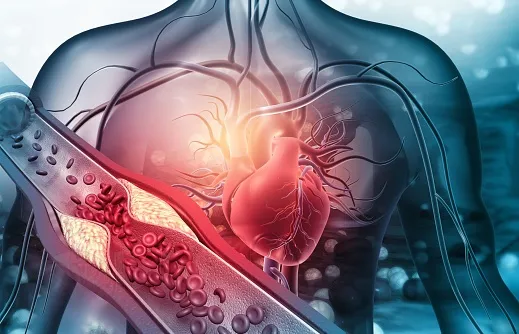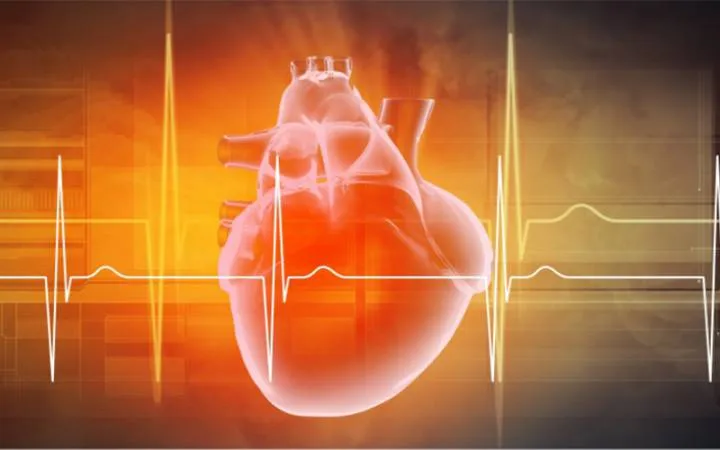Tests Included (1)
- Sex Hormone Binding Globulin (SHBG)
Sex hormone binding globulin (SHBG) is a protein produced by the liver that transports the hormones testosterone (an androgen), dihydrotestosterone (DHT) (an androgen), and estradiol (an estrogen) in the blood as biologically inactive forms. Changes in SHBG levels can affect the amount of hormone that is available to be used by the body’s tissues. This test measures the level of SHBG in the blood and is most often used to help evaluate patients for testosterone deficiency or excess.
In men, about 45% to 65% of testosterone in blood is normally bound to SHBG, with the remainder weakly and reversibly bound to albumin (the main protein in the blood). Only about 2% to 3% of testosterone is immediately available to the tissues as free testosterone, but testosterone that is weakly bound to albumin is also bioavailable and can be readily taken up by the body’s tissues.
Slightly more testosterone is bound to SHBG in the blood (66% to 78%) in women than in men. In women, SHBG plays an integral role in regulating the levels of bioavailable male sex hormones (androgens) and estrogens circulating throughout the body. SHBG has a higher affinity for the androgens testosterone and DHT and so in the setting of low SHBG, women may have signs and symptoms related to androgen excess.
A total testosterone test does not distinguish between bound and unbound testosterone but determines the overall level of testosterone in the plasma. In many cases, this test is sufficient to evaluate patients for excess or deficient testosterone production. However, if your SHBG level is not normal, then the total testosterone may not be an accurate representation of the amount of testosterone that is available to your tissues. An SHBG test may be performed when your signs and symptoms do not correlate with the results of a total testosterone test.
How is it used?
The sex hormone binding globulin (SHBG) test may be used to help evaluate men for low testosterone and women for excess testosterone production. It may be ordered in conjunction with other tests to evaluate the status of a person’s sex hormones.
SHBG in men
SHBG and total testosterone levels may be ordered for an adult male to help determine the cause of infertility, a decreased sex drive, or erectile dysfunction. Measurement of SHBG in addition to testosterone is especially helpful when total testosterone results are inconsistent with clinical signs.
Measurement of total testosterone in the blood does not distinguish between bound and unbound (bioavailable) testosterone but, as the name implies, determines the overall quantity of testosterone in the blood. In many cases, this is sufficient to evaluate patients for the possibility of excess or deficient testosterone production. However, if a person’s SHBG level is not normal, then the total testosterone may not be an accurate representation of the amount of testosterone that is available to the body’s tissues.
Increased SHBG in men may be associated with symptoms of low testosterone levels (hypogonadism) because less testosterone is available to the body’s tissues. Low testosterone leads to increased production of SHBG, further decreasing the amount of testosterone available to tissues.
The Endocrine Society professional guidelines recommend measuring total testosterone in the initial screen for testosterone deficiency in men. If abnormal, the test is repeated on another day. If repeat results are low-normal and/or if SHBG is abnormal, one of the following is recommended:
- Measure bioavailable testosterone (using ammonium sulfate precipitation of SHBG)
- Calculate free testosterone from total testosterone and SHBG
- Measure free testosterone (using a method called equilibrium dialysis)
SHBG in women
In women, small amounts of testosterone are produced by the ovaries and the adrenal glands. Even slight increases in testosterone production can disrupt the balance of hormones and cause symptoms such as irregular or missed menstrual periods, infertility, acne, and excess facial and body hair (hirsutism). These signs and symptoms and others are often seen with polycystic ovary syndrome (PCOS), a condition characterized by an excess production of male sex hormones (androgens). SHBG and testosterone testing may be useful in helping to detect and evaluate excess testosterone production and/or decreased SHBG concentrations and in evaluating women suspected of having PCOS.
When is it ordered?
Currently, the SHBG test is not performed frequently or routinely. SHBG is ordered primarily when the total testosterone results do not seem to be consistent with clinical signs and symptoms, such as infertility, decreased sex drive, and erectile dysfunction in men or infertility, irregular menstrual periods, and excess facial and body hair in women.
What does the test result mean?
A high SHBG level means that it is likely that less free testosterone is available to your tissues than is indicated by the total testosterone test. A low SHBG level means that more of the total testosterone is bioavailable and not bound to SHBG. This information may be important in your overall evaluation when you have signs and symptoms of a condition related to excess or deficient sex hormone production.
Increased SHBG levels may be seen in:
- Liver disease
- Overactive thyroid (hyperthyroidism)
- Eating disorders (anorexia nervosa)
- Estrogen use (hormone replacement therapy and oral contraceptives)
- Decreased sex hormone production in men (hypogonadism)
- Pregnancy
Decreases in SHBG are seen with:
- Obesity, type 2 diabetes or the metabolic syndrome
- Polycystic ovary syndrome
- Underactive thyroid (hypothyroidism)
- Androgen (“anabolic steroid”) use
- Cushing syndrome or excessive use of glucocorticoids (such as prednisone or dexamethasone)
Booking Procedure:
- Fill the booking form on right side with Name, Address, Mobile no.
- Blood/Urine samples will be collected from your Home address. 10-12 hrs fasting is required.
- You need to make the payment by cash to Thyrocare when Technician comes to pick up the samples OR Pay online after confirmation of booking.
- Reports will be couriered at your residence in 3-4 working days if hardcopy is opted. We will email the reports within 48-72 hrs on your email address mentioned while booking.
- Sample pickup at home
- Online reports within 48 hours

User Reviews
Please add your review
Similar test/profile
At Second Medic, we offer a comprehensive range of lab tests to help diagnose and monitor a wide variety of medical conditions. Our state-of-the-art laboratories are equipped with the latest technology and staffed by highly trained professionals, ensuring that our patients receive accurate and reliable results.
We offer a wide range of lab tests, including blood tests, urine tests, and other diagnostic tests. Our lab tests are designed to provide a comprehensive view of a patient's health, allowing us to detect and monitor medical conditions early on, and make informed treatment decisions.
We understand that lab tests can be stressful, which is why we strive to make the process as easy and comfortable as possible for our patients. Our team of friendly and compassionate professionals are always available to answer any questions or concerns that our patients may have.
At Second Medic, we are committed to providing the highest quality lab tests and personalized care to our patients. We believe that every patient is unique and deserves a personalized approach to their healthcare, and we work closely with our patients to develop individualized treatment plans that meet their specific needs.
If you are in need of lab tests, we invite you to schedule an appointment at one of our convenient locations today. Our team looks forward to serving you and helping you achieve optimal health and wellness.







